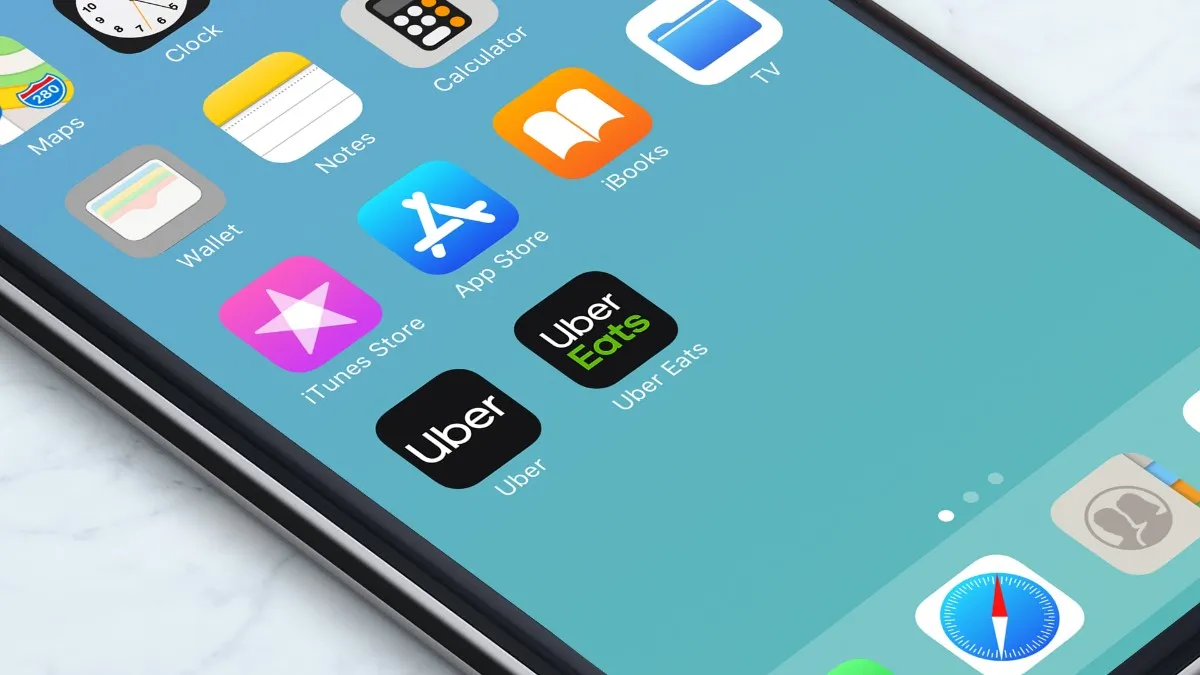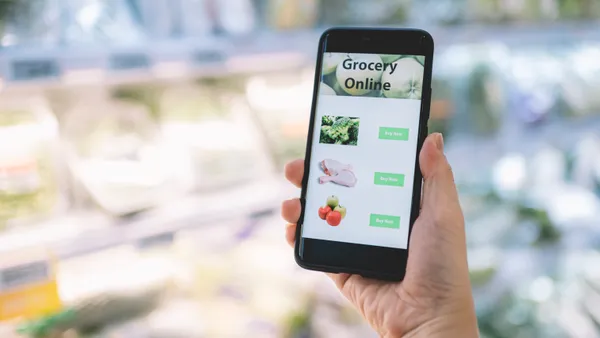Dive Brief:
- Uber is acquiring the remaining 47% in grocery delivery firm Cornershop in an all-stock transaction, according to the ride-hailing company’s latest 8-K filing. The transaction is expected to close next month.
- Uber announced it would acquire a majority stake in Chile-based Cornershop in October 2019 and launched U.S. grocery delivery last July.
- The full acquisition highlights Uber’s drive to compete in grocery delivery and further diversify from its hobbled ride-hailing business.
Dive Insight:
Uber acquired its majority stake in Cornershop in order to gain valuable expertise in picking and delivering groceries. While its Uber Eats business has experience ferrying food to consumers’ doorsteps, Cornershop provided grocery-specific handling and back-end technology resources in what was at the time a new vertical for the ride-hailing and restaurant delivery company.
By acquiring the company outright, Uber is solidifying yet another asset in its fight for relevance amid a fiercely competitive grocery delivery market.
"To truly unlock the full potential of this partnership, we need to operate as one company,” Oskar Hjertonsson, founder and CEO of Cornershop, said in a tweet Monday morning.
While Uber Eats is a major player in restaurant delivery, it remains a minor one in grocery delivery compared to industry heavyweight Instacart. Uber offers service in 20 major metropolitan markets nearly a year after launching in the U.S., and has been relatively quiet in announcing new retailer partnerships.
In contrast, Cornershop and Uber have a leading position in select international markets, including Brazil, according to Hjertonsson's tweet, underscoring the global ramifications of the tie-up.
To increase its share of grocery delivery, Uber is utilizing its two greatest assets — its large user base and financial heft. Last month, the company launched an “everyday essentials” online store with Gopuff, which utilizes the convenience delivery company’s warehouses and delivery fleet to provide a nationwide service through the Uber Eats platform. Uber also recently launched a feature allowing ride-share customers to order and pick up meals and groceries while en route to their destination
On the acquisition front, Uber acquired alcohol delivery company Drizly in February for $1.1 billion and Postmates last July.
In addition to delivery apps like Instacart and DoorDash, Uber is also competing against new instant-delivery firms offering delivery in 15 minutes or less in cities like New York, intensifying its need to evolve and introduce new services.
Across grocery and restaurant delivery, third-party apps are becoming a dominant force that food sellers, despite their drive to own more of the end-to-end operations, can’t ignore. According to Edge by Ascential, U.S. sales among on-demand food delivery firms like Uber, Instacart and DoorDash are increasing at a 17% compound annual growth rate and will reach an estimated $139 billion in 2025.













